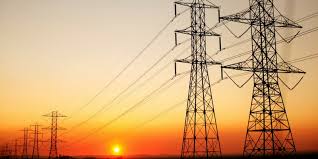This financing from the African Development Fund (ADF), through the concessional window of the African Development Bank (AfDB) Group, consists of a €41.60-million loan and a grant of €17.83 million.
The Board of Directors of the African Development Fund (ADF) approved this financing last Wednesday in Abidjan, Cote d’Ivoire. It will enable Burkina Faso to implement the Electrification and Development of Electricity Connections Project (Pedecel). Its objective is to “extend the distribution network of quality electrical energy to households in several peri-urban and rural areas in ten of the country’s 13 administrative regions.”
A press release from the African Development Bank (AfDB) received by APA on Tuesday indicates that the other three regions of Burkina Faso are already covered by the “Yeleen” project for the development of solar power plants and the reinforcement of the electricity system, which is currently being implemented.
In addition, the source reports, the Sustainable Energy Fund for Africa (Sefa, a special multi-donor fund managed by the ADB) will provide a donation of €130,000. For Marie-Laure Akin-Olugbade, AfDB Director General for the West Africa Region, “the funding of Pedecel confirms the good synchronization of the Bank’s interventions in the energy sector in Burkina Faso over the past ten years.”
For his part, Henry Paul Batchi Baldeh, Director of the Power Systems Development Department at the AfDB, said that “the Pedecel will enable us to carry out a study on the potential for energy efficiency in administrative buildings in Ouagadougou. This study will help prepare the Bank’s future interventions in the country with regard to energy efficiency.”
With Pedecel, at least 218,400 households will be connected to the electricity network, representing about 1,528,800 inhabitants, including 790,390 women, or 51.7 percent of the total. During the construction and operation phases, approximately 560 direct and indirect, temporary and permanent jobs will be created.
In Burkina, subscription fees are “a barrier to access to electricity.” That is why, the press release states, new customers will pay only 3,000 CFA francs (€4.55) at the outset, compared to 90,000 to 218,000 CFA francs (€137.20 to €332.33) currently, and the remaining connection fees will be paid in monthly installments over a three-year period.
In addition to the African Development Bank, other donors, such as the European Investment Bank (EIB) and the Arab Bank for Economic Development in Africa have pledged additional funding to cover the total cost of the Pedecel project, which is estimated at €136.86 million. For its part, the Burkinabe government and the national electricity company (Sonabel) will disburse €16.23 million.
The Pedecel, which is to be carried out between October 2021 and December 2025, is part of an emblematic AfDB project implemented in eleven Sahelian countries including Burkina Faso. This program, called “Desert to Power,” aims to produce 10,000 megawatts of solar photovoltaic energy by 2030 for 250 million people.
By 2027, the Burkinabe authorities want to achieve at least 60 percent national access to electricity: 90 percent in urban areas and at least 30 percent in rural areas. There still is a long way to go because by the end of 2020, about 22.5 percent of Burkinabe (67.4 percent in urban areas and 5.3 percent in rural areas) had access to energy.
ID/fss/abj/APA


